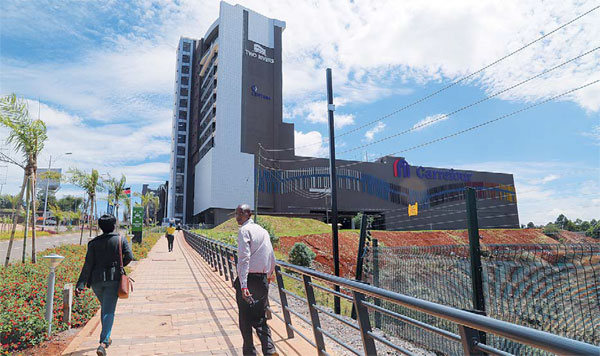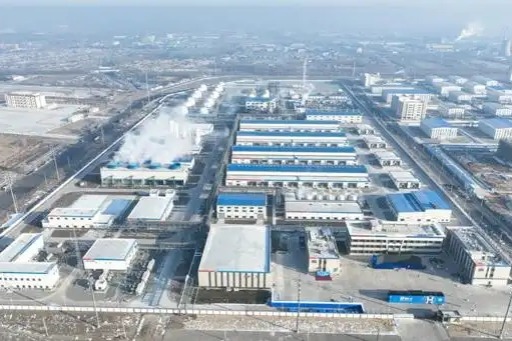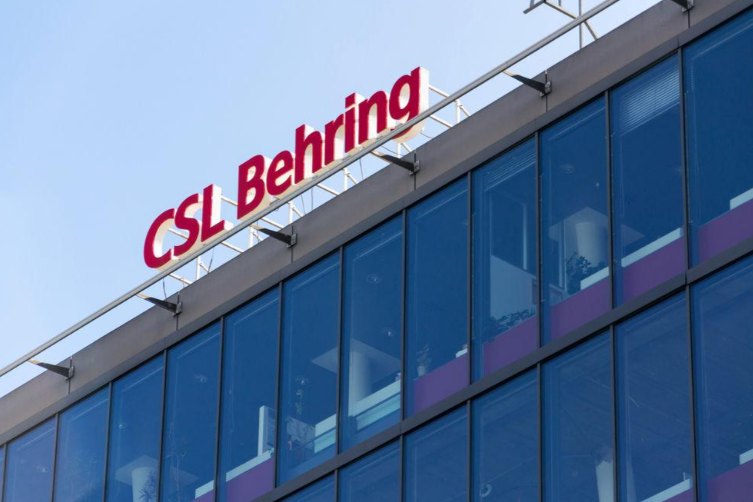Chinese backed project points to future

Giant mall project sets example for fulfilling East Africa's potential, experts say
The successful launch of Two Rivers Mall in Kenya marks the first entry of Chinese private funds into East Africa's mega construction sector and raises expectations of future activity by Chinese firms.
The mall, said to be the largest of its kind in East and Central Africa, has seen China National Aero-Technology International Engineering Corporation (AVIC International) and Jiangxi Water and Hydropower Construction Co (JWHC) jointly invest $70 million for a 38.9 percent stake, valuing the project at about $180 million.
This has attracted the interest of investment bankers and analysts who are closely watching the share price performance of Centum Group as it makes its entry into the nascent retail sector. The company is Kenya's biggest publicly-traded investor.
| Two rivers mall opens doors to Kenyans. It is the biggest facility in East and Central Africa. Lucie Morangi / China Daily |
AVIC International is the developer of phase one, valued at $250 million and consisting of a 62,000-square-meter shopping mall, two office towers and a parking bay.
After its official launch by President Uhuru Kenyatta, the facility recorded more than 120,000 visitors on its third day.
"The fact that the Chinese partly own the project, and the positive response it is getting, definitely sends the right signals to foreign investors that Kenya and the region offer great investment opportunities whose returns are favorable," says Edwin Chui, Senior Analyst at Dyer and Blair, one of the oldest investment banks in the region based in Nairobi.
Despite the Kenyan bourse experiencing a bear run for the last two years, Chui says that the project is an indication that some sectors in the market are still very lucrative, and the entry of the Chinese cements this fact.
"Previously, Chinese firms have been heavily involved in the public sector, where they are constructing huge infrastructure projects owned by African governments. Rarely have we seen them dabbling in the private sector and this is good news for us," says the analyst.
According to Deloitte, a global consultancy firm, this is the first project owned by the Chinese in the region. Conversely, they are no strangers to southern and western Africa, where they have 2.4 percent and 2.2 percent ownership respectively.
Chui attributes the entry into East Africa to the value of the project and the viability of the retail and real estate sectors. The region has been previously accused of lack of bankable projects, he says, a gap that Centum Group has identified and exploited using its new business model.
"The company has moved away from its traditional business of focusing on private equity and is now creating opportunities and scaling up green field projects. This strategy has clearly found a soft spot with Chinese investors," he says.
Besides the Two Rivers project, Centum Group has also partnered with two Chinese firms - Sichuan Electric Power Construction Co and CHD Power Plant Operation Co - in the construction of a 1,000 megawatt coal power plant in the Kenyan coastal area of Lamu.
The senior analyst also credits the company's sound management to the successful partnership with Chinese investors.
"The investment firm, which is also listed in Uganda Securities Exchange, has built a sound culture, and its books are healthy."
The publicly traded company announced a 25 percent jump in profits last year, driven by the gains on the stock market.
"I think this is the kind of company profile Chinese investors are looking for," says Chui.
While concurring with Chui's sentiments about the sound management team at Centum Group, Raymond Kipchumba, a research analyst at ABC Capital, also based in Nairobi, notes that the Two Rivers Mall indicates Chinese investors' affinity for huge projects.
"Unfortunately, Kenya has been unable to absorb the huge capital that the Chinese wield. However, Centum Group is sharing the risk by actually funding and propping up these projects then aggressively looking for Chinese investors. I think they have already formed a symbiotic relationship that will flourish in the future," Kipchumba says.
He says the global economic slowdown calls for stronger China-Africa business partnerships.
"Returns on investment from developed markets are low. This means that Africa offers better opportunities and I believe the Chinese have the upper hand considering their presence here. I believe these firms have an edge over their counterparts back home in indentifying and investing in lucrative projects early."
Liu Xianfa, the Chinese ambassador in Kenya, says the project is symbolic of the growing relations between Kenya and China.
"Despite the global economic slowdown, Kenyan firms are aggressively investing in their projects and this is roping in Chinese firms. This partnership has culminated in the successful launch of this project," he says.
lucymorangi@chinadaily.com.cn
(China Daily Africa Weekly 02/24/2017 page28)
Today's Top News
- Experts: Lai not freedom fighter, but a pawn of the West
- Hainan evolves as gateway to global markets
- Opening up a new bridge between China and world
- Tour gives China-Arab strategic trust a boost
- China accelerates push for autonomous driving
- Opening of new gateway can help foster global economic and trade cooperation































